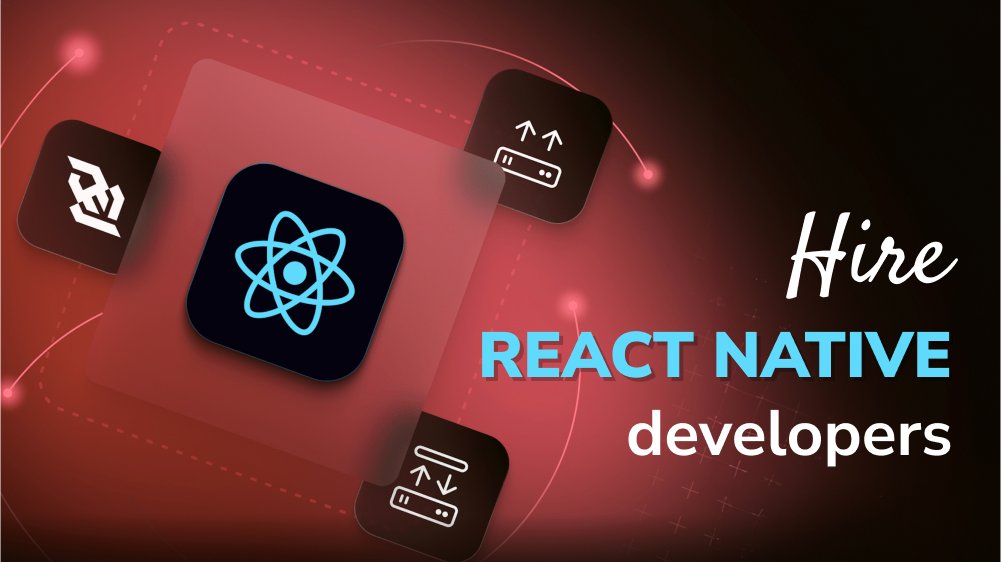What are the Best Tips for Hiring a Software Developer at a Startup?

Content Map
More chaptersHiring software developers is never a smooth road, as developers are one of the most difficult positions to fill these days. However, all the problems and difficulties of businesses in the hiring process are solved with the increasingly popular appearance of the software development company. However, that beautiful scenario only applies to medium and large enterprises using outsourcing. What about startups that are still hiring in-house developers? What challenges do they face, and are there any tips for hiring a software developer at a startup? The answer is yes. Let’s find out in the article below!
Startup Developer Hiring Issues
Not only early-stage startups but organizations, regardless of current size, also need to hire software developers for their companies. A well-qualified software development team will be the right hand to help businesses turn product ideas into reality quickly while ensuring quality. However, hiring software developers is never easy, especially for startup founders, when there are dozens of challenges out there.

Lack of Recruitment Experience
Capital recruitment is finding and selecting the right person to meet the requirements of the position being opened and meet the in-house team’s long-term goals. For early-stage startups, hiring developers plays an even more urgent role as they need more than anyone else a software development team to support the development of the company in the early stages - considered the most challenging period for fledgling startups. However, because of the lack of experience in the organization and operation, many startups forget the importance of the recruitment department and even lack a long-term orientation. Business founders can find themselves needing help figuring out what to look for. The lack of direction from the start creates a massive hole in the interview process and confuses employers and existing employees. Failure to identify hiring needs even causes startups to choose the wrong developer.
Time Constraints
As startups, startups are often on a limited timeline with the software development project. Desiring to speed up the process of hiring software engineers in order to have people meet deadlines, the invisible hiring department generally makes the big mistake of making rushing decisions and not taking the time needed for complete assessments of potential candidates. However, the project manager forgets that people are the decisive factor for the success of a business. Hasty hiring at the beginning not only makes the startup lead to costs further down the line but also stifles future growth and adds extra pressure on existing teams.
Financial Concerns
The software developer hiring process can be expensive for startups due to the competition for talented developers and the high salary expectations that some of them demand. Especially for positions from senior developers and above, they know their worth and always expect a high raise in compensation when joining a new company. That is also why startups find it difficult to recruit and pay salaries to a software engineer with the whole experience and tech stack knowledge. In addition, there are many other costs associated with recruitment, such as advertising expenses, recruiter fees, and administrative overhead. Even without any of these additional costs, the recruiting process itself can be time-consuming and add an extra strain on already limited resources.
Limited Software Engineer Resources
Considered the core field when connecting all areas of life, information technology is the current trend but is facing a severe shortage of human resources. Organizations are under tremendous pressure to hire candidates to support the entire project. They compete for the same skill set, and many turn to contractors to fill immediate skills gaps. DevOps engineers, cyber security specialists, and data scientists are only the beginning of a long list of critical technical skills in short supply. This shortage of software developers is even more substantial in the resource-constrained startup environment. Many large enterprises, well-funded startups, and technology firms all compete for the same pool of highly skilled software engineers, making it harder for early-stage startups to attract and retain top tech talent.
No Hiring Process
It is rare for a company to have no software developer hiring process, as hiring talented software developers is vital to the success of building software products. However, some startups may sometimes lack a formal recruitment process for software developers for several reasons. As a young organization, startups often have limited resources and cannot afford to have a dedicated HR department focused on hiring. Instead of having a tailored recruiting strategy in place, they tend to simply rely more on resumes, references, and interviews to make decisions without having a robust hiring process in place. And in some cases, the company founders may use their network and personal connections to bring in software engineers instead of having a standard hiring process in place. All these approaches can lead to a wrong developer selection and may not guarantee the best software developer who is on the same page.
Poor Reputation
According to general statistics, up to 92% of people would consider changing jobs if a company with an excellent corporate reputation offered them a role. This metric speaks volumes about the importance of a company’s reputation. A good reputation company is undeniably more likely to attract the best talent and successfully retain those employees. People often choose well-known and well-known companies in the industry to collaborate with in software engineers and in all other positions. Unfortunately, reputation is something that takes time to build. Collaborating with an unknown company is quite risky for a senior engineer when it can affect the reputation and the quality of work output if there is no good coordination from both sides. That’s also why it’s hard for startups to hire developers with a solid technical background and understanding of multiple programming languages. Besides, not investing in necessary PR activities for the company also weakens the business’s brand identity compared to other same industry companies.
Lack of Cultural Fit
For IT specialist positions, the company is no longer looking for degrees or certificates but rather for someone with an excellent working attitude and the ability to quickly adapt to this rapidly changing world. Technical skills are undeniably essential for a software developer, but what many companies look for in tech talent is company culture fit and robust soft skills such as problem-solving skills, communication skills, etc. Due to many unfavorable factors, such as limited resources, high demand, and sometimes overwhelming competition, startups struggle to find the real piece of the puzzle on the same page.
Hire Developers Efficiently with these Practical Tips

Identify your Hiring Requirements and Candidate Profile
Understanding yourself and the business’s needs and wants is one of the first steps to a successful software developer hiring process. To summarize the company’s requirements for a perfect software developer, the HR department must work with the project manager before the interview. These requirements may include technical skills, soft skills, a specific test task, experience, qualifications, and values that align with the company’s values. Setting fixed standards for tech talent will help you accelerate the recruitment process and ensure that the right developer is chosen for your software development project, as he possesses all the required needs.
Study Market Trends
The market constantly fluctuates and changes according to the development of computer science and people’s modernization. What you know today may become obsolete tomorrow. That is why the company constantly learns and absorbs new knowledge about the market. Keeping up with market trends in the software development industry and understanding the skills needed for specific roles will help the HR department identify ideal software engineers. It also ensures that startups are aware of the latest software development technologies and other advancements, which can improve their development process and therefore be more efficient when recruiting a new software engineer.
Make Use of the Job Portals
For country-specific searches, local job portals are a good place to start. Instead of manually posting to recruitment groups, it would be a better idea to use job boards to shorten the time to find developers. Currently, there are many different popular job boards that support project managers in recruiting, such as LinkedIn, GitHub, Stack Overflow, etc. Such platforms allow you to filter candidates by skill sets, which helps bring the right experts to your team. However, post jobs there mindfully, monitor them regularly, minimize copy-pasting generic job descriptions, and expect the applications to pour in. Using job boards properly will help startups get detailed insights into applicant data and create tailored recruitment processes that target the right kinds of developers when hiring a software developer.
Build a Company Profile on Social Media
Social media is an effective branding tool for startups you may have yet to notice. As mentioned above, a software developer pays the most attention to reputation when applying to a company, next to employee perks. By investing in building organizational brand identities on platforms such as Facebook, YouTube, etc., startups cut recruiting efforts, establish a strong online presence and reach out to more extensive networks of the potential software developer. Once your business has become more visible in the industry, candidates will automatically find the position you are recruiting for without having to spend too much effort and time to hire developers like in the first stage.
Build your Hiring Funnel
Hiring funnel is a template that represents the entire hiring process with different stages according to the candidate’s journey. The hiring funnel can be particularly beneficial for startups with limited resources, as it allows them to prioritize and select candidates more effectively. By using a pre-defined process, startups can ensure they only invest their resources in those who match their requirements and are qualified for the job. A well-defined hiring funnel also reduces time wasted on irrelevant applications funnel, allowing companies to focus on recruiting the best candidate.
Outline the Must-have Skills
It may sound like the simplest advice for selecting the best developers in your business, but putting together a physical description of the skill set required is easier than you may realize. Make two lists: one list of must-have items, the minimum requirement for all candidates, and the other list of liked items. Nobody is perfect, but a candidate’s essentials may be discussed during his interview. The pickier you are, the better you are at discovering what you can find and the better it can make.
Hire Software Developers from Other Resources
Hiring developers from other resources is one of the tips for hiring a software developer at a startup in case you want access to human resources other than on-site local developers. Startup developers that you can consider choosing from, in this case, include offshore software developers, remote developers, and freelance developers. You can easily find such employees on freelance platforms or from a recruitment agency. They are all good options for businesses to have a broader range of software developers for a lower cost than hiring full-time developers. By providing the same quality of work as a team from the local market, this type of setup is even more flexible and offers faster turnaround times, making it ideal for startups with tight deadlines or those looking to create an attractive product quickly for the company’s growth.
Outsourcing is the Best Tip when Hiring Software Developers

One of the optimal tips for hiring a software developer at a startup is to use software development outsourcing services. If you are currently overwhelmed with work and encounter one of the above challenges when starting to hire software engineers, it would be the right choice when you consider a technical outsourcing company for your hiring process. With a larger pool of talent consisting of a team of senior developers and offshore/freelance developers which can provide better quality results in less time compared to an in-house team, outsourcing helps startups to be able to utilize experienced and specialized developers to create the desired product without getting involved in the complex recruitment process. Now, startups can fully focus all their energies on core value-creating tasks.
Hiring a developer at an early-stage startup can have a multitude of disadvantages and difficulties in the beginning. However, do not worry too much because the end result will definitely be worth it if you invest with honest effort. Hope that with all the above tips for hiring a software developer for a startup, Orient helps you somewhat in successfully recruiting competent developers. If there is a need to outsource a dev team available to develop your own products, don’t forget Orient is always here with many services to meet each of your needs.







